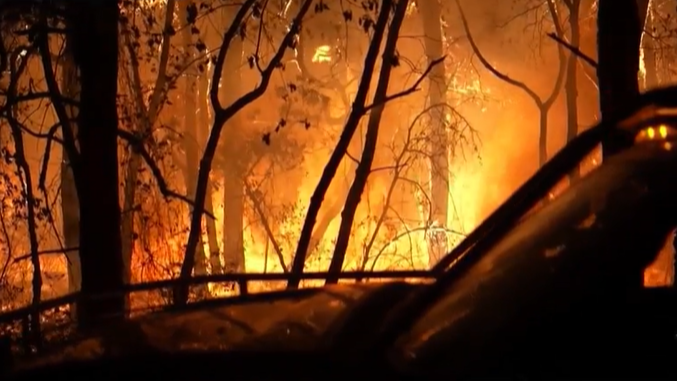
MT. HOLLY, N.J. (KYW Newsradio) — New Jersey firefighters are working to contain a 5,000-acre wildfire in Bass River State Forest that has prompted the evacuation of six homes and the Timberline Lake Camping Resort. Meteorologists and environmental officials say wildfires in the region are becoming increasingly more severe as a result of climate change.
Dry weather conditions are making the situation more difficult. Though the region had rain last month, meteorologist Amanda Lee with the National Weather Service says the amount of precipitation in May was below normal.
“In the last month we got just under a quarter-inch of rain. And typically in the month of May we see a little over three and a half inches of rain,” Lee said.
“In fact, … we set record lowest precipitation amounts for the month of May at Philadelphia as well as three other of our climate sites across the region.”
Trevor Reynor with the New Jersey Forest Fire Service says dry conditions make it more difficult to fight the Bass River State Forest fire.
“We know that this woods is very overstocked, very high-dense fuels — so 'fuels' is your trees and your pine needles — and leads the way to extreme fire behavior and inaccessibility,” Reynor said.
Reynor says the last wildfire in that area burned 11,000 acres back in 1999.
“So this piece of forest that the fire occurred in hasn't burned in 24 years, which leads to accumulation of fuels,” he said.
John Cecil, assistant commissioner at the New Jersey Department of Environmental Protection, says climate change has extended the wildfire season, which historically has tended to wrap up in mid-May.
“Typically we would have expected forest fire season in New Jersey to start to wrap up in mid May. We're seeing the wildfire season extended in the northern part of the state, on average, by 10 days — here in the southern part of the state, by about four days,” Cecil said.
“We had a very significant wildfire last summer around Father's Day, mid to late June. So these challenges for us, from a forest firefighting standpoint, remain significant.”


